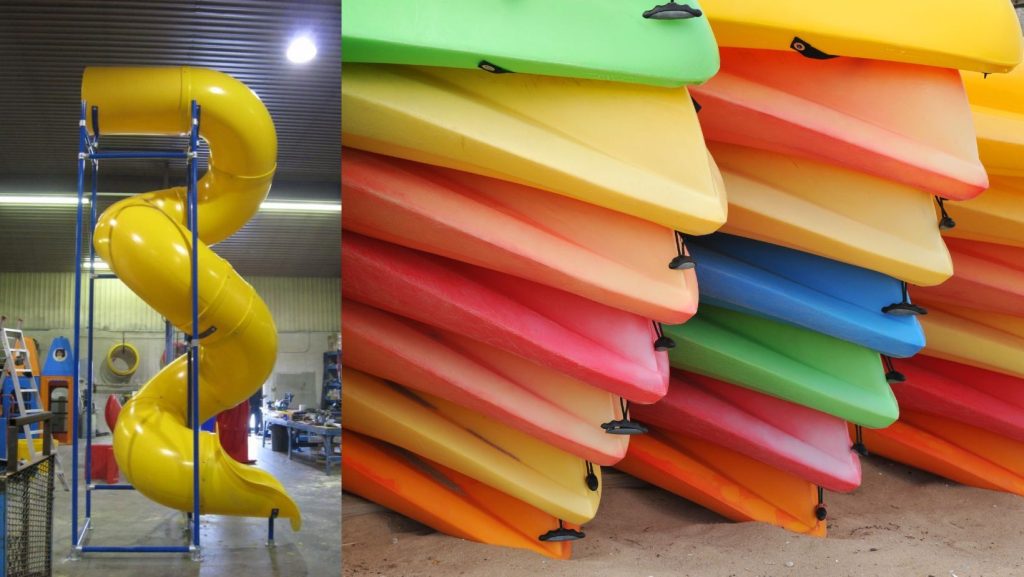
When it comes to manufacturing durable, seamless plastic components, rotational molding stands as a versatile and highly reliable method. Industries ranging from automotive to healthcare depend on this technique to produce long-lasting products, but what makes rotational molding such a powerful process for creating strong, seamless parts? Below, we’ll explore the benefits of this manufacturing method, break down the process itself, and explain why it’s the go-to solution for many high-performance applications.
The Essentials of Rotational Molding
Rotational molding, often called rotomolding, is a technique that creates hollow, one-piece plastic parts. Unlike injection or blow molding, this process ensures an even distribution of material without requiring additional joints or seams. The result? Strength and durability that stand up to wear, pressure, and time. Commonly used materials include polyethylene (PE) and polypropylene (PP), both well-known for their robustness and resilience in harsh environments.
Essentially, the process begins with powdered plastic resin placed inside a mold. This mold is then enclosed, heated, and rotated on multiple axes. The combination of heat and rotation allows the resin to coat the inner walls of the mold as it melts and fuses into a uniform layer. And because there are no seams or welds in finished parts, weak points that could jeopardize structural integrity are eliminated.
What’s especially cool about rotational molding is the precision it enables. By adjusting heat, materials, and rotational speed, manufacturers can meet exact specifications while achieving consistent results. It’s a win-win for both engineers and end users.
What Makes Rotational Molding Ideal for Seamless Parts?
One-Piece Construction Means No Weak Spots
With rotational molding, parts are manufactured as a single, continuous piece. This eliminates the need for joints or welds, which are often the weakest points in other manufacturing processes. Joints can fail under intense mechanical or environmental stress, but with rotomolding, the entire product maintains its integrity—even under the most demanding conditions.
Think of bulk containers, storage tanks, or playground equipment—all of which need to withstand significant weight, pressure, and outdoor exposure. These items simply wouldn’t perform as well without rotomolding’s seamless design.
Uniform Wall Thickness for Optimal Strength
One of the standout features of rotational molding is its ability to produce parts with uniform wall thickness. Uneven walls can create stress points that are prone to cracks or deformation. By evenly distributing the material during the molding process, the structure of each piece is reinforced, boosting both strength and lifespan.
For instance, products like medical equipment enclosures or water treatment tanks benefit from this uniformity. They deliver reliability where failure isn’t an option.
Durable Materials for Long-Lasting Use
Rotomolding utilizes plastics that are resistant to chemicals, UV damage, and impact. Compared to alternative processes, the plastics used in this technique are better suited for outdoor conditions and hazardous environments. That’s why many military, industrial, and agricultural parts are trusted to this method—whether it’s rugged tool cases or protective housings for machinery.
Creative Designs Without Sacrificing Strength
Rotational molding is not just functional—it offers flexibility for innovative designs. Complex shapes, textured surfaces, and custom colors are all achievable, making it an ideal method for products like garden furniture, kayaks, and decorative planters. Importantly, these design elements do not compromise the strength of the final product, making it a rare balance of form and function.
The Manufacturing Process Breakdown
At its core, rotational molding consists of four key stages:
Loading the Mold
Plastic resin (in powdered form) is introduced into the mold cavity. The type and amount of plastic are carefully selected based on the desired properties of the final product.
Heating and Rotating
The closed mold is transferred to an oven, where it rotates along two perpendicular axes. This rotation ensures that the heated resin spreads evenly across the mold’s interior.
Cooling for Uniform Solidification
Once the plastic has completely melted and coated the mold, the assembly is cooled. This solidification process locks in an even, seamless layer, free of voids or inconsistencies.
Demolding the Finished Product
After cooling, the mold is opened, and the finished part is removed. It’s now ready for inspection, additional finishing touches, or direct shipping, depending on the project’s requirements.
This process, though straightforward, delivers exceptional consistency and precision while minimizing waste—a major plus for sustainable manufacturing.
Why Choose SPI Plastics for Your Rotational Molding Needs?
If you’re searching for a partner that specializes in rotational molding for durable plastic parts, SPI Plastics has the expertise and technology to bring your vision to life. Whether you need seamless storage solutions, heavy-duty industrial components, or creatively designed consumer products, SPI Plastics can handle your project with precision and care.
Our facility and skilled team allow for tailored solutions that fit your exact specifications. Plus, our commitment to quality ensures that your final product will meet the highest standards of durability and performance.
Take the next step in creating your reliable and seamless plastic product with SPI Plastics. Contact us today to discuss your project and discover the possibilities of rotational molding!